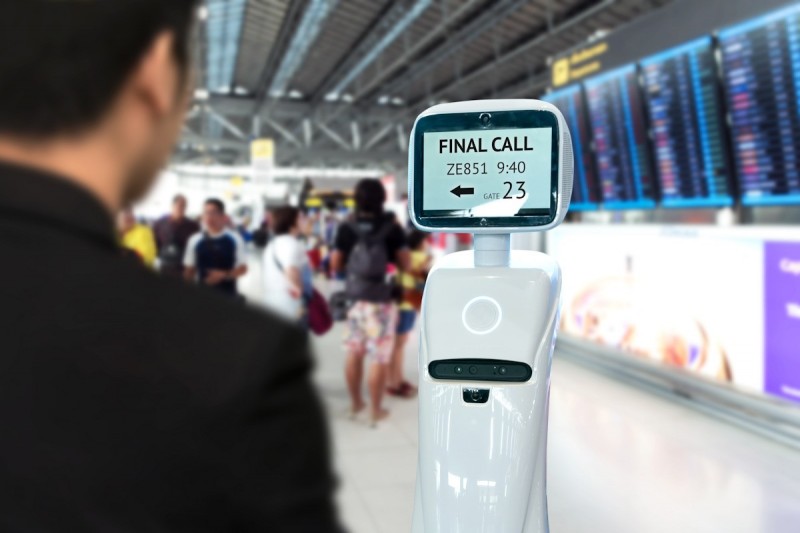
Image credit: INFORM Software
THE travel and hospitality industry was among the hardest hit industries during the pandemic.
For Malaysia, a country that boasts a thriving travel and tourism sector, this had an adverse impact on the economy. In the first nine months of 2020, tourism receipts plunged 80.9 per cent to RM12.6 billion from RM66.1 billion.
That said, the opening of the country's borders on April 1 signals hope for the tourism industry. While the tourism and hospitality industry are on the road to recovery, it is grappling with new business realities.
Fewer business travellers, newer no-contact preferences and higher overall expectations are a few of the factors that will continue to shape customer experience in the leisure, travel and tourism industry in the region.
From contactless services, such as payments and digital room keys, to more outdoor activities, to being assured that trips can be changed or cancelled without losing money, wooing today's traveller will require optimising the customer journey, eliminating friction, and personalising the experience before, during and after travel.
That's where conversational artificial intelligence (AI) and automation can help.
Digital transformation accelerated across nearly every industry during the pandemic. The travel and hospitality sector was no exception. Adopting digital touchpoints and services became a top priority versus a nice-to-have offering.
Consumers that moved to online transactions aren't likely to return to old habits, meaning that expectations are higher than ever for a great user experience while shopping for, booking, and changing travel plans online.
However, when travellers are confronted with issues such as unexpected delays or cancellations, they often want assistance from a human being.
They want and expect a personalised, empathetic experience with customer service, including interacting with agents who understand the issue and can quickly resolve it. Alleviating the hassles and headaches of travel so they can get to their relaxing vacation experiences faster is what will rebuild guest and traveller loyalty.
Optimising the travel customer experience starts by understanding every conversation before, during, and after an agent-traveller interaction — from self-service to agent assistance to after-call follow-up and fulfilling promises made during the call.
A conversational automation platform powered by conversational AI, machine learning, and automation technology can understand and optimise every conversation with travellers and agents, regardless of the channel.
Conversational AI is a set of advanced technologies that recognises and comprehends human language and uses this understanding to optimise, automate and analyse conversations in and across multiple channels.
With a conversational automation platform powered by AI, travel and hospitality contact centres can use machines to automate conversations and augment agents to achieve the type of transformational results that drive excellent customer experiences, high Net Promoter Scores (NPSs), superb traveller/guest satisfaction ratings, and greater revenue.
Conversational AI for traveller self-service helps brands strengthen engagement with customers and improve satisfaction for routine interactions before, during and after the trip — while reducing volume in the contact centre by 15 per cent or more. Before the trip, an intelligent virtual agent (IVA) interacts with travellers to help them book their travel.
For example, a customer can call to make a reservation and interact with a voicebot IVA. Using natural language understanding (NLU) technologies eliminates friction in the reservation process to enable travellers to easily complete the booking.
Seamlessly connected with the reservation and customer relationship management (CRM) systems, the IVA simplifies the transaction by automatically confirming the details required to book the travel and uses the customer's previous travel history to make personalised upsell offers.
During the trip, the IVA supports guests with services during their travel such as booking a reservation at a restaurant. Using geo-based alerts, the IVA proactively greets the customer upon arrival and presents an offer connected with past interactions at the destination.
The guest is supported throughout the trip with proactive alerts based on location and can also make requests, such as scheduling a late checkout. Routine requests are quickly handled so staff can focus on more high-touch interactions to drive superior guest experiences and engagement. After the trip, the IVA proactively engages customers, for example to book their next trip or complete a survey.
Using conversational AI to optimise, analyse and automate every conversation is the foundation for travel and hospitality brands to transform the traveller and agent experience, drive customer satisfaction, and generate greater loyalty and revenue as travel demand continues to rebound.
The right conversational automation platform that addresses the entire customer conversation from self-service to post-interaction analytics can help your company deliver a positive, personalised, and frictionless experience for your customers.
Source: https://www.nst.com.my/opinion/columnists/2022/04/790784/ai-role-improving-customer-experience-travel-industry

